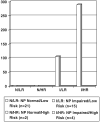Functional consequences of HIV-associated neuropsychological impairment
- PMID: 19472057
- PMCID: PMC2871666
- DOI: 10.1007/s11065-009-9095-0
Functional consequences of HIV-associated neuropsychological impairment
Abstract
This review focuses on the "real world" implications of infection with HIV/AIDS from a neuropsychological perspective. Relevant literature is reviewed which examines the relationships between HIV-associated neuropsychological impairment and employment, driving, medication adherence, mood, fatigue, and interpersonal functioning. Specifically, the relative contributions of medical, cognitive, psychosocial, and psychiatric issues on whether someone with HIV/AIDS will be able to return to work, adhere to a complicated medication regimen, or safely drive a vehicle will be discussed. Methodological issues that arise in the context of measuring medication adherence or driving capacity are also explored. Finally, the impact of HIV/AIDS on mood state, fatigue, and interpersonal relationships are addressed, with particular emphasis on how these variables interact with cognition and independent functioning. The purpose of this review is to integrate neuropsychological findings with their real world correlates of functional behavior in the HIV/AIDS population.
Figures



References
-
- Albert SM, Marder K, Dooneief G, Bell K, Sano M, Todak G, et al. Neuropsychological impairment in early HIV infection: a risk factor for work disability. Archives of Neurology. 1995;52:525–530. - PubMed
-
- Albert SM, Weber CM, Todak G, Polanco C, Clouse R, McElhiney M, et al. An observed performance test of medication management ability in HIV: relation to neuropsychological status and medication adherence outcomes. AIDS and Behavior. 1999;3(2):121–128.
-
- Ances BM, Ellis RJ. Dementia and neurocognitive disorders due to HIV-1 infection. Seminars in Neurology. 2007;27(1):86–92. - PubMed
-
- Atkinson JH, Grant I, Kennedy CJ, Richman DD, Spector SA, McCutchan JA. Prevalence of psychiatric disorders among men infected with human immunodeficiency virus: a controlled study. Archives of General Psychiatry. 1988;45(9):859–864. - PubMed
Publication types
MeSH terms
Substances
Grants and funding
LinkOut - more resources
Full Text Sources
Medical

